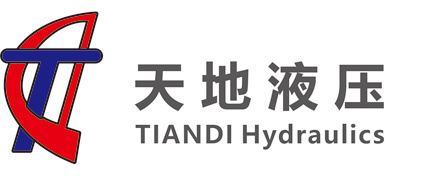GET THE LATEST NEWS FROM THE COMPANY
NEWS CATEGORY
Unlocking Efficiency: The Essential Role of Hydraulic Power Control Units in Industrial Applications
Published:
2025-04-25 13:00
Unlocking Efficiency: The Essential Role of Hydraulic Power Control Units in Industrial Applications
Table of Contents
1. Introduction to Hydraulic Power Control Units
2. Understanding Hydraulic Systems and Their Components
3. The Key Functions of Hydraulic Power Control Units
4. Benefits of Using Hydraulic Power Control Units
4.1 Enhanced Operational Efficiency
4.2 Improved Safety Standards
4.3 Cost-Effectiveness Over Time
5. How Hydraulic Power Control Units Work
6. Applications of Hydraulic Power Control Units in Various Industries
6.1 Construction
6.2 Agriculture
6.3 Manufacturing
7. Maintenance Tips for Hydraulic Power Control Units
7.1 Routine Inspections
7.2 Common Maintenance Practices
8. Troubleshooting Hydraulic Power Control Units
8.1 Identifying Common Issues
8.2 Solutions and Best Practices
9. Conclusion
10. FAQs
1. Introduction to Hydraulic Power Control Units
Hydraulic power control units (HPCUs) serve as the backbone of hydraulic systems in various industrial applications. These devices manage the flow and pressure of hydraulic fluid, ensuring that hydraulic machinery operates efficiently and safely. Understanding the basic concepts surrounding HPCUs is crucial for engineers, maintenance personnel, and operators alike.
2. Understanding Hydraulic Systems and Their Components
Hydraulic systems utilize pressurized fluid to perform work. Key components include hydraulic pumps, actuators, and control valves, each playing a vital role in system functionality. Hydraulic power control units integrate these components, allowing for precise control over hydraulic operations.
What Are Hydraulic Power Control Units?
Hydraulic power control units are essentially sophisticated mechanisms that regulate the hydraulic fluid's pressure and flow in a system. They consist of a hydraulic pump, control valves, and an accumulator, all designed to enhance system performance.
Importance of Hydraulic Systems in Industry
Hydraulic systems are integral to modern industrial processes. They are used in machinery that requires high power density, enabling tasks ranging from lifting heavy loads to precise material handling.
3. The Key Functions of Hydraulic Power Control Units
Hydraulic power control units perform several critical functions:
1. **Pressure Regulation**: They maintain system pressure within optimal ranges to avoid damage and ensure efficiency.
2. **Flow Control**: HPCUs manage the flow of hydraulic fluid, allowing for smooth operation and reducing wear on components.
3. **Safety Mechanisms**: These units often include safety features to prevent over-pressure situations, protecting both the machinery and its operators.
4. Benefits of Using Hydraulic Power Control Units
Incorporating hydraulic power control units into industrial systems offers numerous advantages.
4.1 Enhanced Operational Efficiency
By providing precise control over hydraulic flow and pressure, HPCUs facilitate smoother operation, translating to improved productivity.
4.2 Improved Safety Standards
Safety mechanisms integrated within HPCUs significantly reduce the risk of accidents, safeguarding operators and equipment.
4.3 Cost-Effectiveness Over Time
While the initial investment in hydraulic systems may be substantial, the long-term savings from reduced downtime and maintenance costs make HPCUs a wise choice.
5. How Hydraulic Power Control Units Work
Hydraulic power control units function through a series of interconnected components. When the hydraulic pump pressurizes the fluid, the control valves direct it to various actuators based on operational demands. This coordination allows machines to perform tasks such as lifting, pushing, or rotating with remarkable efficiency.
6. Applications of Hydraulic Power Control Units in Various Industries
HPCUs find applications across a wide range of industries.
6.1 Construction
In construction, hydraulic systems powered by HPCUs are essential for operating heavy machinery such as excavators, cranes, and bulldozers.
6.2 Agriculture
Agricultural equipment, from tractors to harvesters, relies on hydraulic systems to facilitate tasks such as plowing, lifting, and transporting materials.
6.3 Manufacturing
Manufacturers utilize hydraulic power control units in machinery for assembly lines, material handling, and production processes, enhancing overall efficiency.
7. Maintenance Tips for Hydraulic Power Control Units
To ensure optimal performance, regular maintenance of hydraulic power control units is essential.
7.1 Routine Inspections
Periodic inspections help identify potential issues before they escalate. Check fluid levels, inspect hoses for leaks, and ensure all components are functioning correctly.
7.2 Common Maintenance Practices
- **Fluid Replacement**: Regularly change hydraulic fluid to prevent contamination.
- **Filter Changes**: Replace filters to ensure clean fluid circulation.
- **Seal Inspections**: Check seals for wear and replace them when necessary to prevent leaks.
8. Troubleshooting Hydraulic Power Control Units
Even with proper maintenance, issues may arise. Addressing these promptly is crucial.
8.1 Identifying Common Issues
Common problems include inadequate pressure, fluid leaks, and erratic operation. Identifying the cause is the first step in troubleshooting.
8.2 Solutions and Best Practices
- **Fluid Levels**: Ensure that fluid levels are adequate.
- **Check for Leaks**: Inspect all connections and hoses for leaks.
- **Diagnose Controls**: Test control systems to ensure they are functioning as intended.
9. Conclusion
Hydraulic power control units are vital components in the efficiency and safety of hydraulic systems across various industries. By understanding their functionality, benefits, and maintenance requirements, operators and engineers can maximize the potential of their hydraulic machinery. Investing in high-quality HPCUs and implementing regular maintenance practices can enhance productivity, safety, and cost-effectiveness in industrial operations.
10. FAQs
What is a hydraulic power control unit?
A hydraulic power control unit is a device that regulates the pressure and flow of hydraulic fluid in a system, ensuring efficient operation and safety.
How do hydraulic power control units enhance efficiency?
HPCUs enhance efficiency by maintaining optimal pressure and flow, which reduces wear on components and improves overall machinery performance.
What industries commonly use hydraulic power control units?
Industries such as construction, agriculture, and manufacturing frequently utilize hydraulic power control units in their machinery.
How can I maintain my hydraulic power control unit?
Regular inspections, fluid changes, and filter replacements are essential for maintaining hydraulic power control units.
What should I do if my hydraulic power control unit is not working correctly?
First, check fluid levels and connections for leaks. If issues persist, consult a professional to diagnose and repair the unit.
hydraulic power control unit
previous page
previous page
Related news

